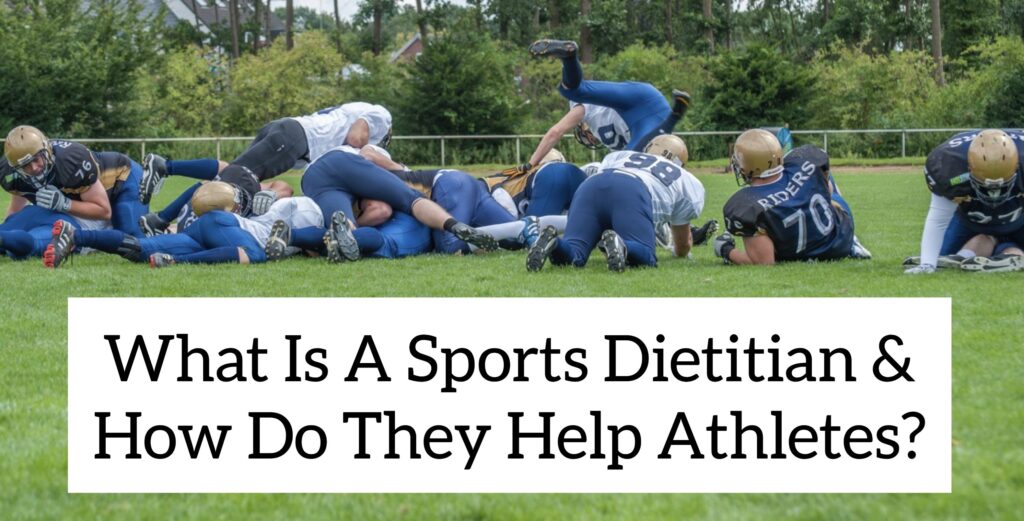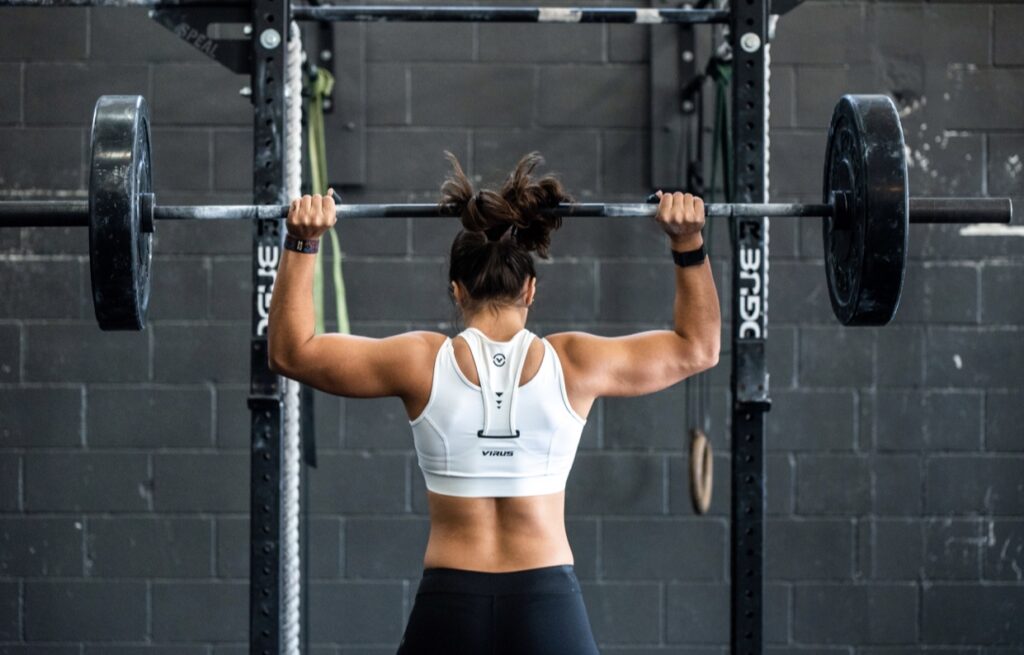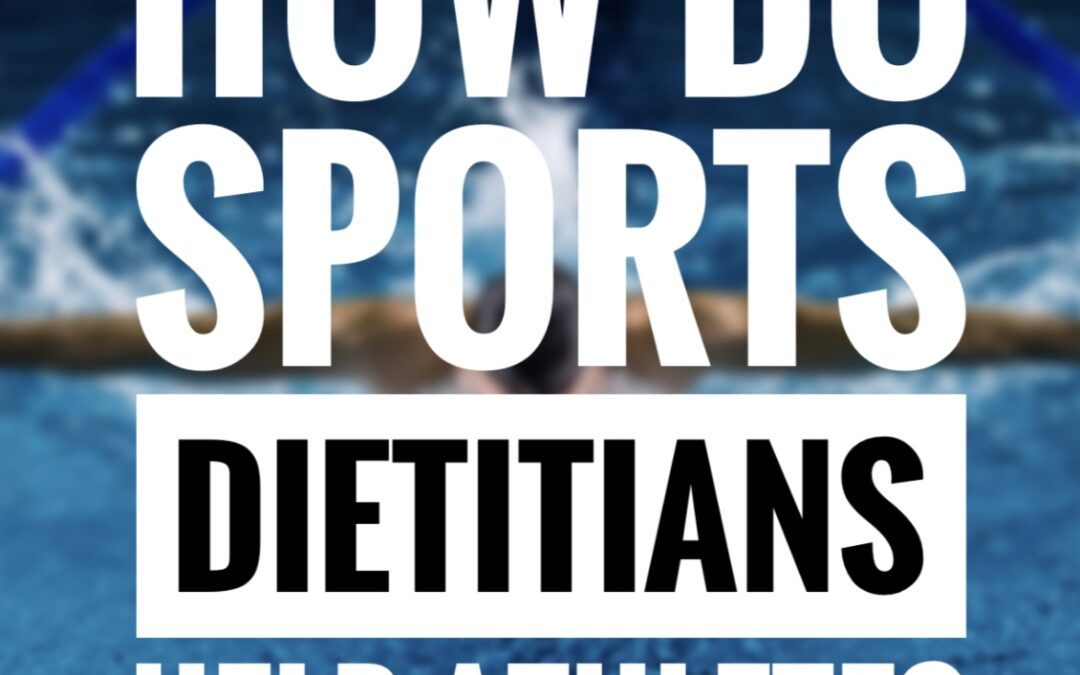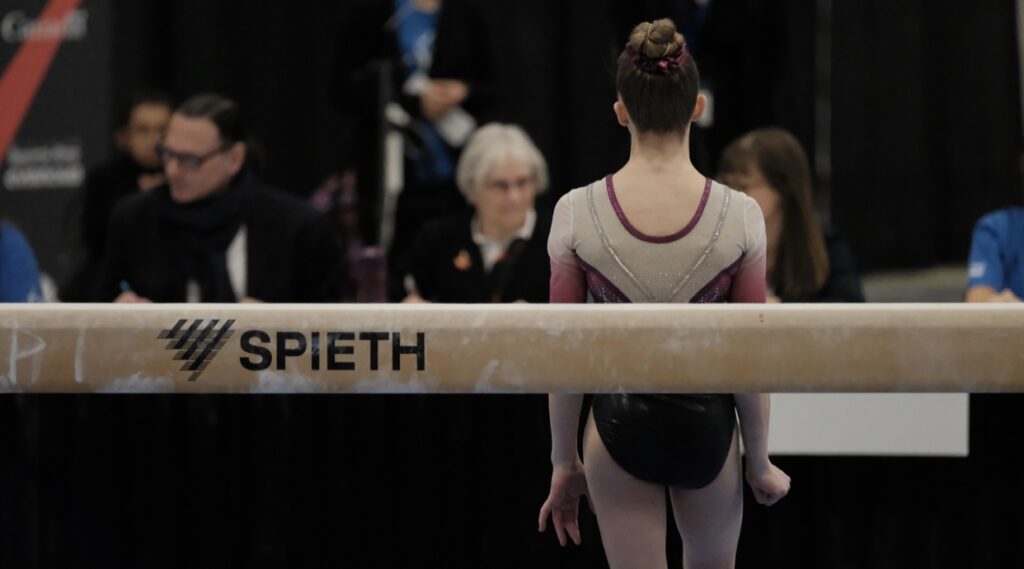Sports dietitians help athletes maximize their development, sports performance and health with evidence-based sports nutrition practices. Their education in food, nutrition and medical nutrition therapy, combined with their training in sports nutrition and exercise physiology, make them uniquely qualified to work with athletes.

I’ve been a registered dietitian for over 20 years. The last 13 of those years have been as a sports dietitian.
When I first started working in the field, the majority of sports dietitians worked with professional sports team or collegiate athletes. There were few sports dietitians working in private practice. And, there was very little focus on middle and high school sports. Since then, sports has exploded as a specialty area of dietetics. College and universities have started master’s degree programs specific to sports nutrition. There are even fellow and mentoring programs available for registered dietitians looking to gain experience working as a sports RD.
Though sports dietitians have become more mainstream, many athletes still wonder what they do, and how they might be able to help them succeed in their sport. I hope this article helps you understand how sports dietitians help athletes.
What Is A Sports Dietitian?
A sports dietitian is a registered dietitian that specializes in sports nutrition. They work with athletes and active people to maximize their health, development and sports performance.
While the title, sports dietitian, is not a legal title, many registered dietitians that work with athletes refer to themselves in that way. Some sports dietitians have training in exercise physiology, kinesiology, human performance or other related field. Others gained knowledge from their years of experience.
As research and interest in sports nutrition advanced, more dietitians were choosing to specialize in the field of study. For that reason, the commission on dietetic registration developed a board certification for this specialty area. To sit for the specialty exam, a registered dietitian must have a minimum of two years of experience in the field of nutrition, and 2000 hours of sports dietetics practice experience. Dietitian that have completed graduate degrees in sports nutrition, exercise physiology, exercise science, kinesiology or nutrition with sports emphasis can substitute some of their hours for work experience.
Once a registered dietitian passes the exam, they can use the CSSD credential, indicating they are board certified in sports dietetics. That credential means that they have the specific knowledge, skills, and expertise for competency in sports dietetics practice.
Main Point: A board certified specialist in sports dietetics (CSSD) is a registered dietitian who has the advanced training needed to practice safe, evidence-based nutrition services for health, fitness and athletic performance.
What Does A Sports Dietitian Do?
Sports dietitians help athletes maximize their development, sports performance and health with evidence-based, sports nutrition practices. They are uniquely qualified to do this, since they have the food and nutrition training of a dietitian, as well as an understanding of exercise physiology, human performance and sport. And, they are trained to critically evaluate scientific research.
Sports dietitians stay abreast the latest sports nutrition research and translate it into practical, meaningful recommendations that athletes can put into practice.
Many coaches, trainers, parents and athletes associate a sports dietitian with telling an athlete what to eat. That’s part of it. But, sports dietitians do way more then tell athletes what to eat before, during and after training and competition. Some sports dietitians focus solely on helping athletes improve sports performance, while others have other specialized training. For more specific ways that a sports dietitian can help, check out a general job description put together by the Sports, Cardiovascular and Wellness Dietetic Practice Group (SCAN).
It’s important to understand that athletes, just like non-athletes, have other nutrition and health needs. A sports dietitian takes all aspects of the athlete into account when helping them to succeed.
Performance Nutrition
Most people associate sports nutrition with sports performance. Sports dietitians help athletes understand how the foods and fluids they eat impact their training and their athletic success. In addition to helping them learn about sports nutrition, sports dietitians create sports nutrition plans that will support an athlete’s specific training regimen, sport and goals.
The focus of performance nutrition is to help athletes eat the right foods, at the right time, to feel and perform well. That includes helping athletes eat for health and injury prevention. Every athlete is different, so each one presents with their own unique needs and goals. For example, a high-level soccer player might need help understanding what to eat and drink so he doesn’t run out of energy in the last 20 minutes of a game. Or, a long-distance runner might need help understanding how to fuel during a marathon.
For some athletes, improving performance means altering body composition. A fast-pitch softball player might benefit from increasing muscular strength in her arm, so that she can throw farther, harder and faster. A hockey player may need help gaining weight so that he’s more competitive on the ice. Or, a cyclist might want to decrease body fat to improve his or her power to weight ratio.
Medical Nutrition Therapy For Athletes
Sports dietitian are dietitians, so they are trained in medical nutrition therapy. That’s really important, since athletes have medical concerns just as much as non-athletes. In fact, the high-level training that athletes do each day can actually lead to medical concerns. A few common nutrition-related medical issues that I see are repeated bone fractures, amenorrhea (girls not getting their menstrual cycle), gastrointestinal problems and fatigue.
Medical nutrition goes beyond that, though. Consider a football player with type I diabetes and needs help adjusting his insulin and food intake around his training regimen. Or, a runner who is experiencing gastrointestinal problem during long runs. A sports dietitian has formal training in medical nutrition therapy and sports nutrition, so they can help athletes with these issues.
Disordered Eating
Though not all sports dietitian are trained or comfortable helping clients with disordered eating, it is a common concern in athletes – way more common than people realize. As a dietitian that works with young athletes, I can tell you that firsthand. Over the past few months, I’ve seen a staggering increase in athletes suffering from disordered eating. It can be hard to recognize in athletes, and is often accepted as normal. But, let me tell you, it’s not.
Because disordered eating can lead to health and performance issues, sports dietitians are often the first to recognize disordered eating in athletes. An athlete might present with repeated injuries, significant weight loss, fatigue or decreased performance. Though often unintentionally, those negative consequences can occur if an athlete decides to try a new diet regimen or eliminated foods that provided a great deal of nutrition. Athletes can get caught-up in the web of nutrition myths and misinformation just like non-athletes. The difference is, it can negatively impact their sports performance and their ability to play sports.
Because it’s so common in sports, many sports dietitians work with athletes that have disordered eating or even eating disorders. Not all of them, though. If a sports dietitian suspects disordered eating, but she or he does not feel comfortable counseling the athlete in that area, a referral can be made.

Sports Dietitian With Other Areas Of Expertise
Like registered dietitians, even sports dietitians can have an area of expertise. I’ll use myself as an example. Most of my work today is with younger athletes, such as those in middle and high school. My specialty in this area means that I understand the nutritional needs during adolescent growth and development. I also recognize the cognitive, behavioral, physiological and social differences between teenage and adult athletes.
Some sports dietitian specialize in working with collegiate athletes, and may work full-time within the athletic department. Others work with professional athletes and professional sports teams. Both of those settings present with a different culture, and have athletes with different barriers.
Not all sports dietitians work with young, collegiate or professional sports. Some work with masters level or recreational athletes. Some only work with athletes that play strength sports, while others specialize in endurance sports. Certain sports dietitians have specialized training in other areas of nutrition, too. They might only work with athletes in that area. Some examples include athletes with diabetes, gastrointestinal issues or those that follow a vegan or vegetarian diet.

Consulting Services Provides By Sports Dietitians
Sports dietitian also work as consultants to sports teams. That means, they are available to provide individual consultation with athletes, as needed, and can collaborate with the multidisciplinary sports and medical team.
In addition to working one-on-one with athletes, a sports dietitian consultant can develop and deliver nutrition presentations for the entire team on a wide variety of topics. They’re also available to participate in events and develop and monitor a team’s hydration and fueling protocols.
Because dietitians are trained in food service, menu development and budgeting food spend, sports dietitian consultant’s help plan team meals for training table and when teams are on the road. That includes helping sports teams budget and coordinate menus, catering and training table. It also includes making sure the right nutritional supplements are available to athletes before, during and after training and competitions.
Sports dietitian are a tremendous resource for coaches, trainers, parents, teachers and sports medicine physicians. The key to success is finding the best one to meet your specific needs.
How To Find The Right Sports Dietitian For You
Finding the right sports dietitian for you goes a step further than simply finding a sports dietitian. If you have general sports nutrition questions related to performance, any sports dietitian should be able to help. If your questions or concerns go beyond general sports nutrition help, it’s worth the extra effort to search for a dietitian with experience in your specific sports or area of need.
The Academy of Nutrition and Dietetics has a dietetic practice group specific to sports nutrition. The dietitians that belong to SCAN are specialists in the area of sports dietetics. If you don’t know a sports dietitian, the Sports, Cardiovascular and Wellness Dietetic Practice Group is a great place to start. They have a listing of sports dietitians and their practice areas. You can also check out their Instagram page to connect.
Another organization made up of sports dietitians is the Collegiate and Professional Sports Dietitians Association (CPSDA). Sports dietitians that are members of CPSDA work full-time in either the collegiate and professional sports setting.
The Commission on Dietetic Registration compiled a list of sports dietitians that are board certified specialists in sports dietetics. You can find that list here. CSSD’s are listed by state, making it easy for you to find one near you.
If you find a sports dietitian that doesn’t have experience in your area of need, ask if they know another sports RD that does. I get many referrals from other sports dietitians throughout the country, and I refer to others when needed. Many work virtually through telehealth and can help you from anywhere in the world.
Have you worked with a rockstar sports dietitian? Share his or her name in the comments below with their area of expertise. It might help other athletes find the right sports dietitian for them.



 Hi, I’m Heather – a registered dietitian, busy mom, consultant, adventure junkie and travel addict who has mastered living healthy on the go. My blog is where I share simple recipes and healthy living tips to help and inspire others to live their best life.
Hi, I’m Heather – a registered dietitian, busy mom, consultant, adventure junkie and travel addict who has mastered living healthy on the go. My blog is where I share simple recipes and healthy living tips to help and inspire others to live their best life.
Good evening,
My name is Josh Noll and I am a student at Lancaster Bible College in Lancaster PA. I am currently in the middle of a health and wellness class and one of our requirements for the semester is to interview a Registered Dietitian or sports nutritionist. After doing some research, I found your name and I was wondering if you would be able to answer some interview questions? There are about 8-10 basic questions about being a nutritionist that you could answer at your convenience. Thanks